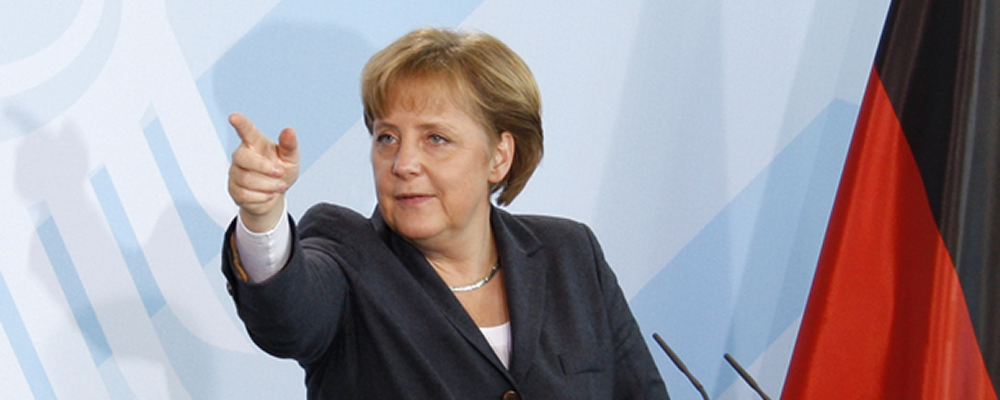Confidence in the Euro picked up sharply after German Chancellor Angela Merkel commented that the single currency is ‘too weak’.
After Merkel noted that Germany’s current record trade surplus is partly the result of the European Central Bank’s (ECB) loose monetary policy EUR exchange rates trended higher across the board.
Markets were also in a positive mood ahead of the latest Eurogroup meeting, with hopes high that finance ministers will approve the disbursement of the next tranche of Greek bailout funds.
However, comments from the Irish and Slovakian finance ministers dampened the mood surrounding the meeting somewhat by talking down the prospect of any progress on the matter of debt relief.
If the Greek debt saga looks set to drag out for even longer, and any agreement on debt relief remains distant, the mood towards the Euro could soon sour once again.
Further volatility is likely in store for the single currency as various members of the European Central Bank (ECB) executive board are due to speak this week.
Comments from ECB President Mario Draghi could put renewed pressure on the Euro, with any reiteration of his dovish policy outlook likely to weigh on the minds of investors.
Even if the latest raft of Eurozone manufacturing and services PMIs better expectations this could limit the upside potential of EUR exchange rates.
As researchers at BBH noted:
‘There is some risk the market gets ahead of itself. The economic improvement is a necessary but insufficient condition to exit the unorthodox monetary policies. Inflation is key. A change in the risk assessment to a more balanced setting or an acknowledgement that interest rates are not going to be cut further would merely confirm what investors already know.’
Demand for the Pound, meanwhile, has shifted in response to the latest developments in the UK general election.
News that the Conservatives’ lead in the polls had narrowed to just nine points prompted Sterling to slump sharply at the start of the week.
However, after Theresa May performed a U-turn on her controversial social care policy the Euro Pound exchange rate reversed some of its earlier gains.
Even so, a solid uptick in new government debt evidenced in April’s public sector net borrowing figure could encourage further selling of Sterling.
With the outcome of Brexit negotiations still far from determined confidence in the outlook of the UK economy is likely to remain limited.
Jitters over the future of the Trump administration maintained some degree of downside pressure on the US Dollar during Monday’s European session.
Although the Chicago Fed national activity index proved stronger than forecast this was not enough to dent the Euro US Dollar exchange rate.
As the odds of an imminent Federal Reserve interest rate hike weakened in response to the scandal threatening to engulf the White House the ‘Greenback’ lacks any particular upside potential.
Wednesday’s Fed meeting minutes could offer the US Dollar a rallying point, though, if the mood amongst policymakers leans towards greater hawkishness.
Current EUR GBP USD Interbank Exchange Rates
At the time of writing, the Euro Pound exchange rate was making gains around 0.8637. Meanwhile, the Euro US Dollar exchange rate was on an uptrend in the region of 1.1251.



